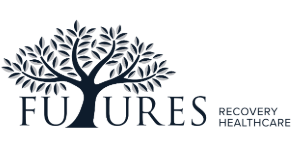Tequesta, Florida, United States
CORE Program at Futures Recovery Healthcare
Verified
Verified
This provider’s information has been quality-checked by Recovery.com’s Research Team for accuracy and completeness, including center verification through appropriate third-party organizations.
Joint Commission Accredited
The Joint Commission accreditation is a voluntary, objective process that evaluates and accredits healthcare organizations (like treatment centers) based on performance standards designed to improve quality and safety for patients. To be accredited means the treatment center has been found to meet the Commission's standards for quality and safety in patient care.
Provider's Policy
Futures is a primary out-of-network provider that works with patients and insurance providers to make its services as accessible and affordable as possible. We do also work with groups we direct contract with so please inquire with our team on whether your employer, group or EAP is contracted with us.
Estimated Cash Pay Rate
The cost listed here ($32,500 - $95,000) is an estimate of the cash pay price. Center pricing can vary based on program and length of stay. Contact the center for more information. Recovery.com strives for price transparency so you can make an informed decision.
About CORE Program at Futures Recovery Healthcare
Futures Recovery Healthcare provides detoxification, residential care for substance use and co-occurring conditions, and residential care for primary mental health disorders. Clients receive expert treatment on Futures’ 9-acre, gated campus in Tequesta, Florida. Their approach to treatment revolves around holistic, evidence-based, and innovative practices. Futures takes a completely individualized approach, catering clients’ treatment plans to their personal needs and circumstances. Their admissions staff begins this process by connecting clients to key staff members who further delve into treatment needs, all to give clients a plan that leads to lasting success.
Recover Under Expert Care
Futures Recovery provides the ultimate oasis for healing and recovery. Their Florida location offers all the beachy, serene aspects of a summer vacation, allowing for a complete focus on recovery. Combined with Futures’ exceptional team of staff, clients’ recovery journey will be as enjoyable as it is beneficial. Diverse teams of therapists, family therapists, wellness advisors, and physical therapists make each level of care highly personalized, and led with the knowledge and accreditations clients need to find lasting recovery.
Specialized Treatment Programs
Futures Recovery offers a variety of specialized programs. Their Hero’s Ascent First Responders track addressed underlying trauma, chronic pain, and addiction. Individual, group, and family therapy connect veterans and first responders to effective and relevant care. Catering to working executives, their Orenda program is a concierge treatment service with its own space on their third floor. Futures’ Rise program focuses on adventure therapy, bringing participants on outdoor adventures to find healing, fun, and empowerment. Rise, Orenda, and their mental health and substance use programs all operate with continuous clinical care. Futures also offers specialized services for those with chronic pain and trauma.
The Space And Amenities for Healing
Clients at Futures Recovery have the choice between a fully private bedroom and living space, or a shared suite with private bedrooms. Both options have a private bedroom. Futures’ standard option includes two private bedrooms, a bathroom, and a shared living space. Clients will enjoy the talents of Futures’ chef and kitchen staff, as well as their pool, whirlpool, gym, and media center. A library, basketball court, and tennis courts give further options for relaxation and movement. The connections made at Futures Recovery Healthcare don’t end at their programs’ completion, and neither does clients’ care. Futures offers aftercare programs to guide and support clients through their recovery.
Read More

Insurance Accepted
Provider's Policy:Futures is a primary out-of-network provider that works with patients and insurance providers to make its services as accessible and affordable as possible. We do also work with groups we direct contract with so please inquire with our team on whether your employer, group or EAP is contracted with us.

BlueCross BlueShield
<p>A leading healthcare provider serving over 100 million Americans as one of the largest insurance companies in the country.</p>
See rehabs that accept this provider.
United Healthcare
Offering plans to individuals and businesses throughout the United States and in countries around the world.
See rehabs that accept this provider.
Aetna
<p>One of the largest health insurance companies in the US, offering several health insurance options to individuals and businesses.</p>
See rehabs that accept this provider.Luxury rehab centers offer a unique blend of luxurious amenities and high-quality treatment. From private suites to gourmet dining, personal trainers to spa treatments, these facilities provide a high level of comfort and discretion.

Specialized Programming
Futures offers multiple pathways to recovery, with 4 unique and separate program options: Substance Use and Co-Occurring Disorders Program, Primary Mental Health Program, Adventure-Based Program, and their Concierge Program. Each program operates independently, providing a unique opportunity for clients to engage with similar individuals.
Pain Treatment Track
Chronic pain or pain without a known cause can both cause a dependency on prescribed pain medications. In Futures’ Pain Track, they focus on the pain behind the addiction by detoxing and working on a management plan for pain. Their specialized services include physical therapy, fitness, meal planning, DBT, CBT, sleep hygiene, and hypnotherapy.
Hero�’s Ascent First Responders Track
Futures Recovery’s first responders track treats veterans and first responders with addiction, trauma/PTSD, chronic pain, and more in a safe and discreet setting. Their Hero’s Ascent track provides medical treatment, individual and group therapy, physical therapy, neurostimulation, and wellness services. Futures offers family therapy and education to help clients and their loved ones heal as a whole.

Center Overview
Estimated Cash Pay Rate
Young Adults
Emerging adults ages 18-25 receive treatment catered to the unique challenges of early adulthood, like college, risky behaviors, and vocational struggles.
Midlife Adults
For adults ages 40+, treatment shifts to focus on the unique challenges, blocks, and risk factors of their age group, and unites peers in a similar community.
Professionals
Busy, high-ranking professionals get the personalized treatment they need with greater accommodations for work, privacy, and outside communication.

Treatment Focus
You can admit to this center with a primary substance use disorder or a primary mental health condition. You'll receive support each step of the way and individualized care catered to your unique situation and diagnosis.

Care Options








Treatment
Specializations
Alcohol
Using alcohol as a coping mechanism, or drinking excessively throughout the week, signals an alcohol use disorder.
Chronic Pain Management
Long-term physical pain can have an affect on mental health. Without support, it can also impact your daily life and even lead to addiction.
Co-Occurring Disorders
A person with multiple mental health diagnoses, such as addiction and depression, has co-occurring disorders also called dual diagnosis.
Depression
Symptoms of depression may include fatigue, a sense of numbness, and loss of interest in activities. This condition can range from mild to severe.
Executives
Executive treatment programs typically directly support the needs of people who manage businesses and may provide flexible schedules and office space to allow work during treatment.
Opioids
Opioids produce pain-relief and euphoria, which can lead to addiction. This class of drugs includes prescribed medication and the illegal drug heroin.
Professionals
Busy, high-ranking professionals get the personalized treatment they need with greater accommodations for work, privacy, and outside communication.
Trauma
Some traumatic events are so disturbing that they cause long-term mental health problems. Those ongoing issues can also be referred to as "trauma."
Approaches
Evidence-Based
A combination of scientifically rooted therapies and treatments make up evidence-based care, defined by their measured and proven results.
Experiential
Expressive tools and therapies help patients process past situations, learn more about themselves, and find healing through action.
Holistic
A non-medicinal, wellness-focused approach that aims to align the mind, body, and spirit for deep and lasting healing.
Wellness
Wellness philosophies focus on the physical, mental, and spiritual wellness of each patient, helping them restore purpose with natural remedies.
Therapies
1-on-1 Counseling
Patient and therapist meet 1-on-1 to work through difficult emotions and behavioral challenges in a personal, private setting.
Meditation & Mindfulness
A practiced state of mind that brings patients to the present. It allows them to become fully aware of themselves, their feelings, and the present moment.
Art Therapy
Visual art invites patients to examine the emotions within their work, focusing on the process of creativity and its gentle therapeutic power.
Equine Therapy
Guided interactions with trained horses, their handler, and a therapist can help patients improve their self-esteem, trust, empathy, and social skills.
Experiential Therapy
With this approach, patients heal by doing. Therapists help patients process difficult emotions to speak, using guided activities like art or dance.
Eye Movement Therapy (EMDR)
Lateral, guided eye movements help reduce the emotional reactions of retelling and reprocessing trauma, allowing intense feelings to dissipate.
Family Therapy
Family therapy addresses group dynamics within a family system, with a focus on improving communication and interrupting unhealthy relationship patterns.
Hypnotherapy
A hypnotherapist guides patients through a trance-like state. This helps them identify and process subconscious emotions and regain inner control.
Conditions We Treat
Anger
Although anger itself isn't a disorder, it can get out of hand. If this feeling interferes with your relationships and daily functioning, treatment can help.
Anxiety
Anxiety is a common mental health condition that can include excessive worry, panic attacks, physical tension, and increased blood pressure.
Bipolar
This mental health condition is characterized by extreme mood swings between depression, mania, and remission.
Chronic Pain Management
Long-term physical pain can have an affect on mental health. Without support, it can also impact your daily life and even lead to addiction.
Codependency
Codependency is a pattern of emotional dependence and controlling behavior. It's most common among people with addicted loved ones.
Depression
Symptoms of depression may include fatigue, a sense of numbness, and loss of interest in activities. This condition can range from mild to severe.
Eating Disorders
An eating disorder is a long-term pattern of unhealthy behavior relating to food. Most people with eating disorders have a distorted self-image.
Post Traumatic Stress Disorder
PTSD is a long-term mental health issue caused by a disturbing event or events. Symptoms include anxiety, dissociation, flashbacks, and intrusive thoughts.
Trauma
Some traumatic events are so disturbing that they cause long-term mental health problems. Those ongoing issues can also be referred to as "trauma."
Substances We Treat
Alcohol
Using alcohol as a coping mechanism, or drinking excessively throughout the week, signals an alcohol use disorder.
Benzodiazepines
Benzodiazepines are prescribed to treat anxiety and sleep issues. They are highly habit forming, and their abuse can cause mood changes and poor judgement.
Chronic Relapse
Consistent relapse occurs repeatedly, after partial recovery from addiction. This condition requires long-term treatment.
Co-Occurring Disorders
A person with multiple mental health diagnoses, such as addiction and depression, has co-occurring disorders also called dual diagnosis.
Cocaine
Cocaine is a stimulant with euphoric effects. Agitation, muscle ticks, psychosis, and heart issues are common symptoms of cocaine abuse.
Drug Addiction
Drug addiction is the excessive and repetitive use of substances, despite harmful consequences to a person's life, health, and relationships.
Ecstasy
Ecstasy is a stimulant that causes intense euphoria and heightened awareness. Abuse of this drug can trigger depression, insomnia, and memory problems.
Heroin
Heroin is a highly addictive and illegal opioid. It can cause insomnia, collapsed veins, heart issues, and additional mental health issues.
Methamphetamine
Methamphetamine, or meth, increases energy, agitation, and paranoia. Long-term use can result in severe physical and mental health issues.
Aftercare
Experience
Personal Amenities
Amenities
Special Considerations
Activities
Off-Site Activities
Professional Staff

Michael Holloway
Chief Executive Officer

Tammy Malloy
Chief Operating Officer, Executive Director
PhD, LCSW, CSAT

Gloria Dunkin
Executive Medical Director
MD

Angela Bustamante
Clinical Director
MS, LMHC
View More Team Members
Accommodations
Food & Nutrition
Treatment
Value
Pros
- Excellent & Effective Treatment Programming (5)
- Smooth Transition Post-Treatment (4)
- Supportive Aftercare (5)
- Addressed Trauma (4)
Cons
- Limited Time to Work (3)
- Not Enough Time With Therapist (2)
See More
Ben B
Andres T
B
Anonymous
MDF
We love hearing about your treatment experience
Help individuals and families seeking treatment by sharing your first-hand experience with this treatment provider. Review Guidelines.










































